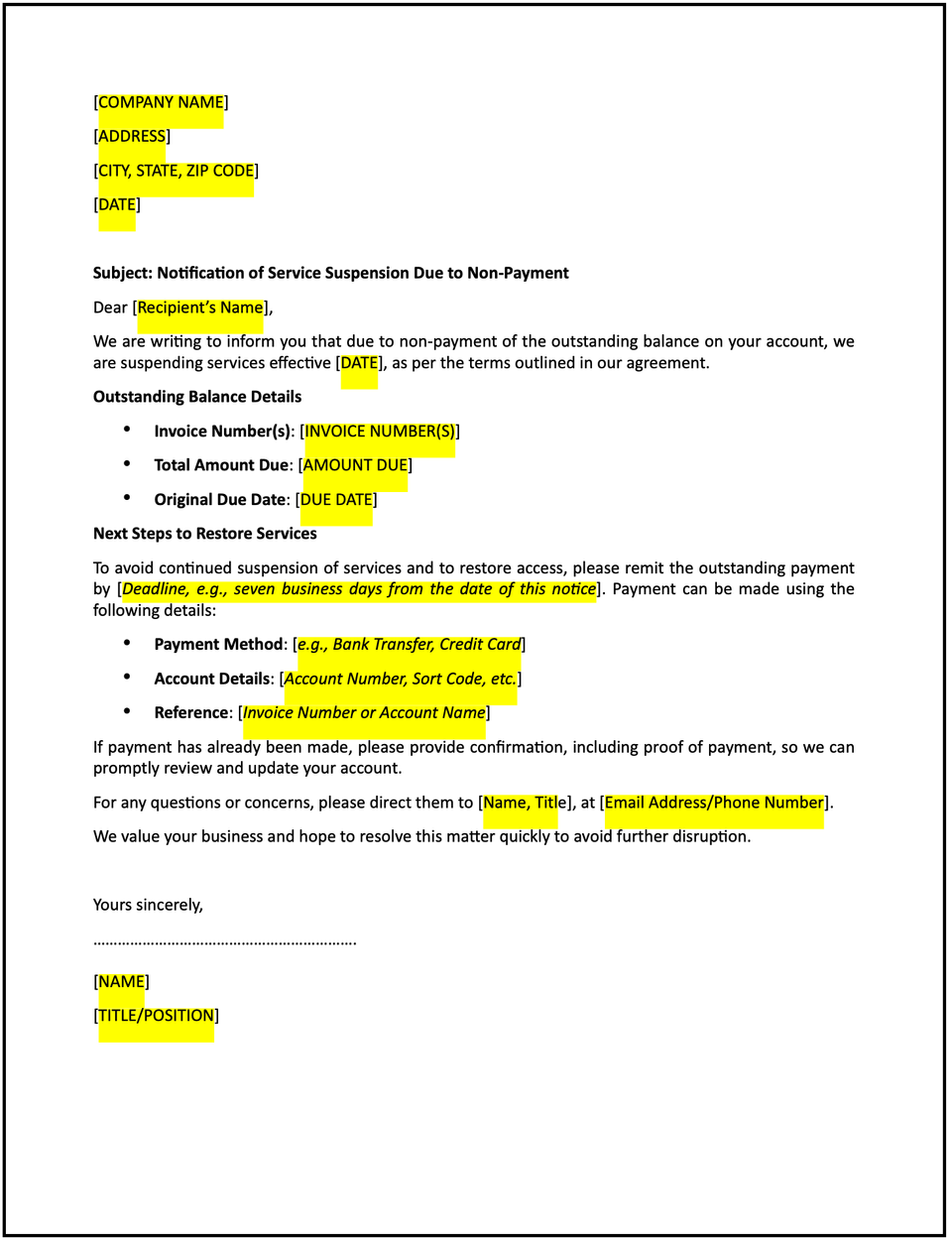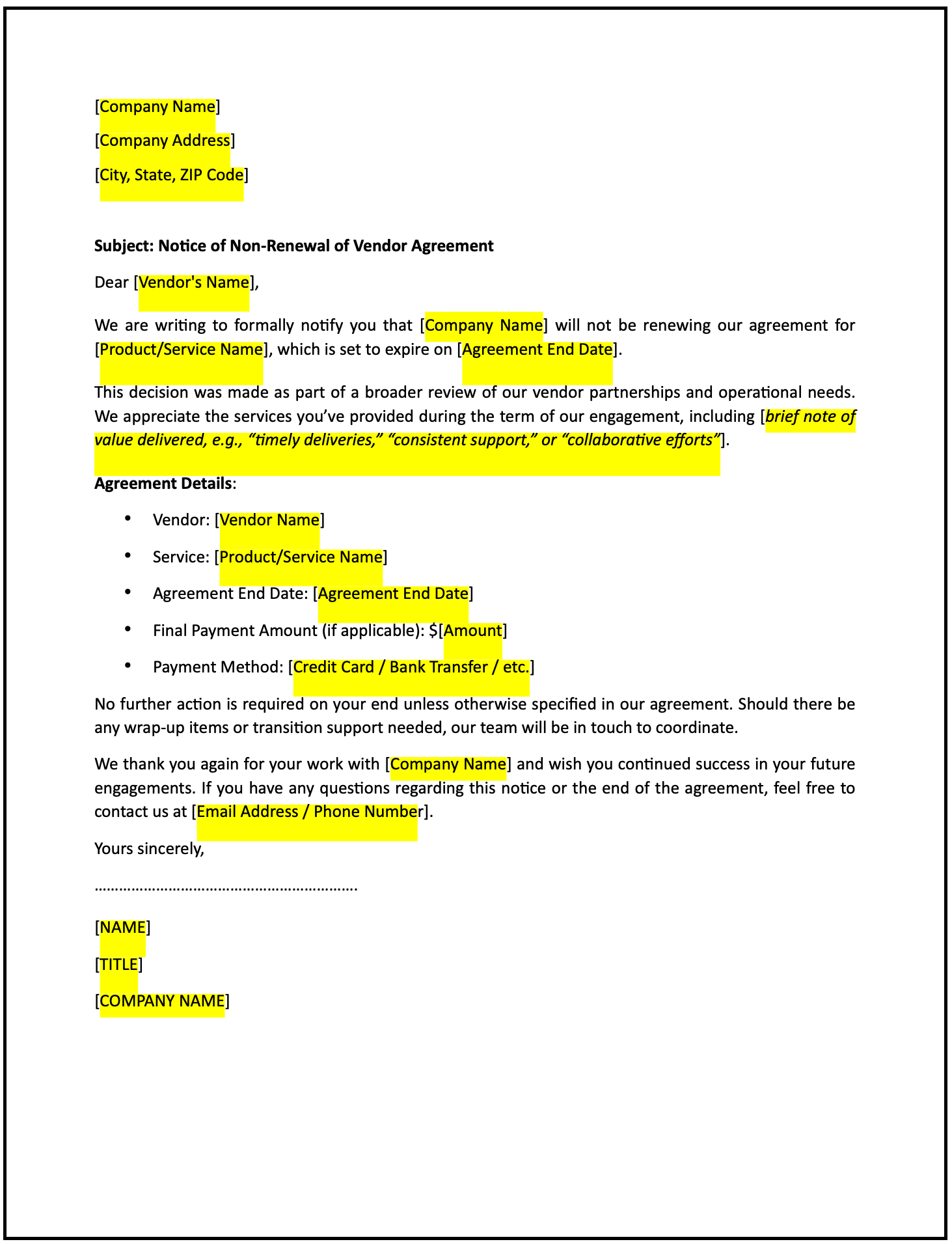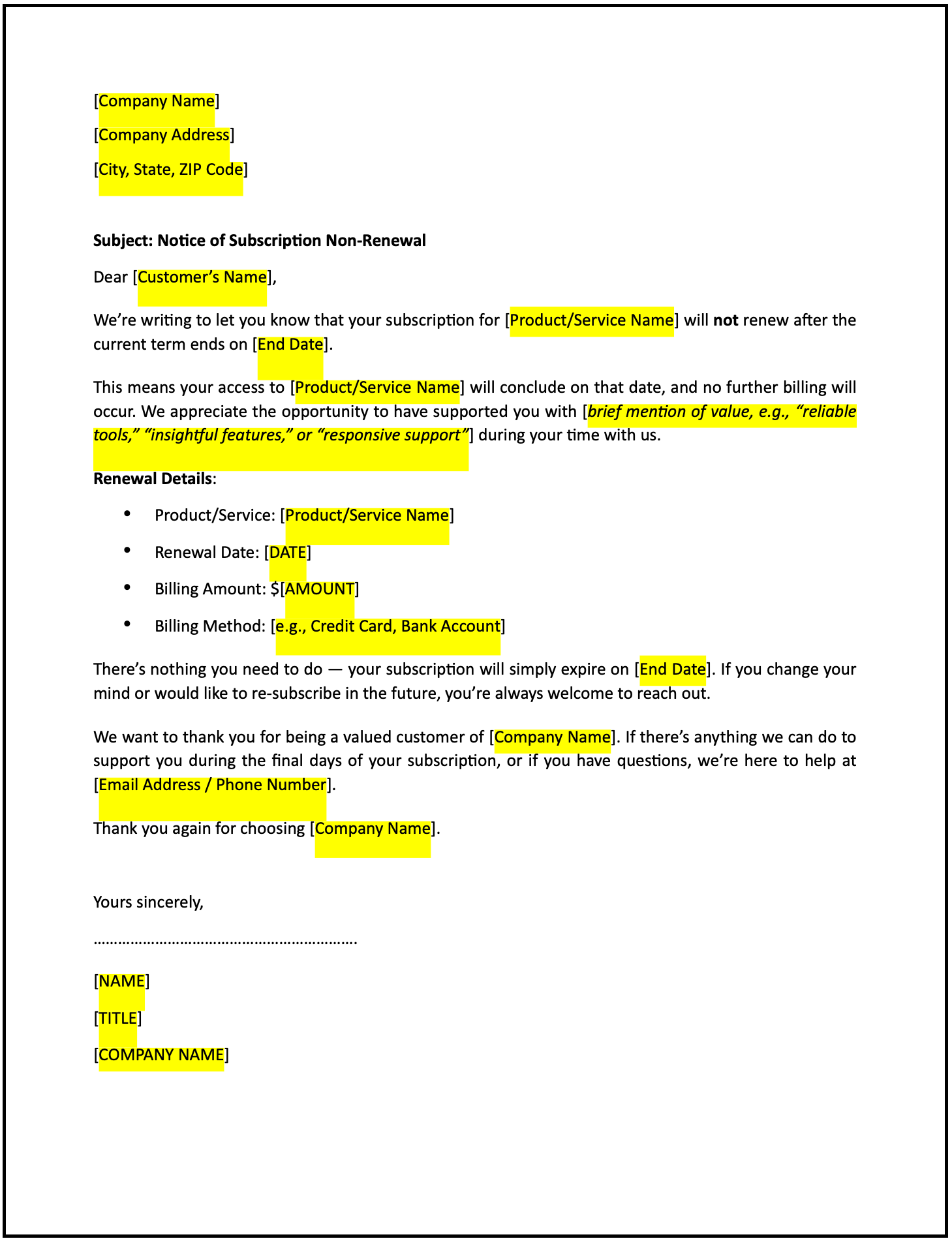Letter of suspension of services due to non-payment: Free template

Letter of suspension of services due to non-payment
A notification letter of suspension of services due to non-payment is a formal communication used to inform customers about the temporary suspension of services resulting from overdue payments. This letter emphasizes the importance of resolving the payment issue promptly while maintaining a professional and empathetic tone to preserve the customer relationship.
How to use this letter of suspension of services due to non-payment
- Open with acknowledgment: Begin by addressing the customer respectfully and referencing their account or transaction details.
- State the issue: Clearly explain that the payment is overdue and mention the amount due, invoice number, and original due date.
- Announce the suspension: Inform the customer that services will be suspended due to non-payment and specify the date when the suspension will take effect.
- Provide next steps: Explain how the customer can resolve the issue, including payment methods and deadlines to avoid further consequences.
- Offer assistance: Reassure the customer that support is available for questions, concerns, or payment arrangements.
- Mention reinstatement conditions: Clearly state the conditions for restoring services, such as full payment or payment of any additional fees.
- Maintain a professional tone: Ensure the letter is clear, polite, and solution-oriented to encourage prompt action.
- Provide contact information: Include details for the customer to reach out for assistance or to discuss the payment.
Benefits of using a letter of suspension of services due to non-payment
This letter ensures a structured and professional way to communicate service suspension while fostering clarity and a path to resolution. Here’s how it helps:
- Promotes accountability: Clearly outlining the issue encourages customers to address overdue payments.
- Reflects professionalism: A well-crafted letter demonstrates respect and a commitment to transparency.
- Encourages timely action: Providing clear steps for resolving the issue minimizes disruptions.
- Maintains customer relationships: Addressing the matter empathetically preserves goodwill and trust.
- Provides documentation: A formal record of the notification supports financial tracking and compliance.
Tips for writing an effective letter of suspension of services due to non-payment
- Be specific: Clearly describe the overdue amount, original due date, and consequences of non-payment.
- Use professional language: Maintain a respectful and supportive tone to encourage cooperation.
- Highlight next steps: Provide clear instructions for resolving the issue and reinstating services.
- Address potential concerns: Offer reassurance and assistance to customers experiencing financial difficulties.
- Keep it concise: Focus on the key points while ensuring the tone is professional and empathetic.
Frequently asked questions (FAQs)
Q: What details should I include in this letter?
A: Include the overdue amount, invoice number, suspension date, payment instructions, and reinstatement conditions.
Q: Should I personalize the letter?
A: Yes, addressing the customer directly ensures clarity and demonstrates attentiveness.
Q: Who typically sends this letter?
A: The finance, billing, or customer service department usually sends this letter.
Q: How formal should this letter be?
A: The tone should be professional yet empathetic, focusing on clarity and resolution.
Q: When should this letter be sent?
A: Send the letter promptly after the payment due date has passed and before the suspension takes effect.
Q: Can this letter include a grace period?
A: Yes, mentioning a grace period or alternative payment options can encourage timely resolution.
Q: Is acknowledgment from the customer required?
A: While not mandatory, requesting acknowledgment ensures the customer is aware of the suspension and next steps.
This article contains general legal information and does not contain legal advice. Cobrief is not a law firm or a substitute for an attorney or law firm. The law is complex and changes often. For legal advice, please ask a lawyer.


